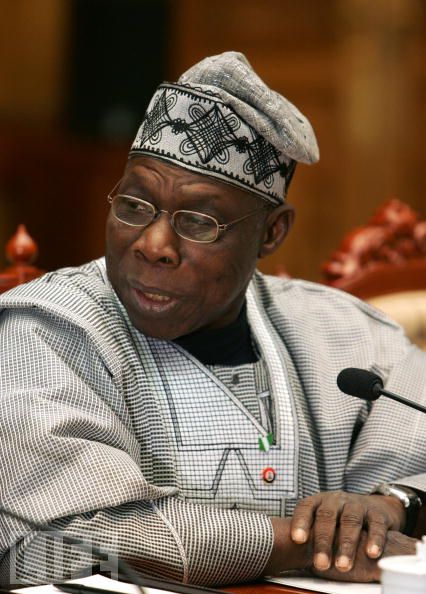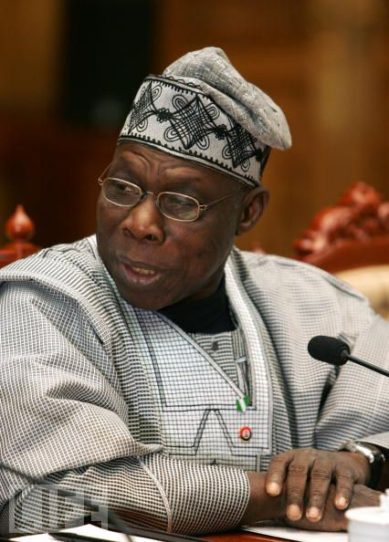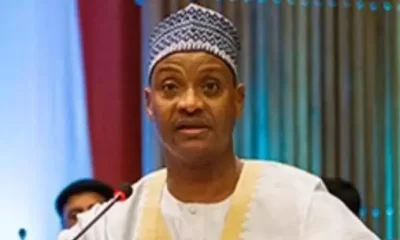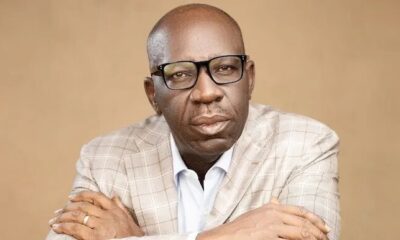National Issues
Obasanjo and the burden of history -By Pat Utomi

As with “My Command”, his civil war memoirs, General Olusegun Obasanjo who served as head of the Nigerian state in uniform, and years later, in mufti (agbada), has managed to get many hopping mad with his new memoirs reflecting on political life. He seems determined that whether you love him or hate him, you could not ignore him.
Let us forget for a second that he is an attention-junkie and that he is judgmental about others in a way that bothers on the indecent, the question his new excursion into memoirs writing raises for me is whether there are points in what he is saying that we can ignore only at our own peril.
This is important because with the Obasanjo nature, it is easy to get so taken by the messenger that the message is forgotten. This course of action is made easier by Obasanjo’s evident split-personality which makes it easy to say of him, “Look, the kettle is calling the pot black”.
Take corruption,for example. No one is in doubt that corruption was widespread when Obasanjo was president and that there is ample evidence or perception of his use of corrupt means to either secure the impeachment of an unfavoured senate president or seek a change in constitution to allow him a third term. But is Obasanjo wrong to say corruption is on the increase?
Many business men I interact with say corruption, described in the Hope and Chukulo book on corruption and Development in Africa, as systemic in Nigeria compared to widespread in Ghana and, rare, in Botswana, has truly reached a point of shameless “legitimisation’’ in these times. I sat once with a fairly depressed lawyer, who described a sad meeting he had just come out of with a minister and some American Business men.
The minister had promised to write a simple letter which would have facilitated commitment to an investment initiative. He dictated the letter in their presence. For weeks, they went to the minister’s office to pick up the letter but were unsuccessful. On the day in question, the lawyer returned to the minister. They were warmly welcomed. The issue was raised and the minister, after a while, simply asked the lawyer if he was not able to read the tea leaves. He needed his bribe. Lawyer tells minister he cannot advice his clients to do that as they would be liable to a jail term back in their home country for that. All attempts to sell the upside for the country and even personally to the minister got strong push back from the minister who said such talk was the reason some of his predecessors were languishing in poverty. He wanted his return upfront, not in nominating partners down the value chain.
Bottom line in corruption has had a more crippling effect on economic life today than a few years ago when things were considered quite bad. Inspite of a climb in the transparency index, where Nigeria is up two notches, the consensus in corruption is more rampant now. That is what President Obasanjo was speaking on and most would agree on that.
Under Obasanjo, a high powered team was empanelled by the presidency to study and propose a structure for the institutions of transparency and accountability in government. The team included a Deputy Inspector General of Police, heads of Transparency in Nigeria, Convention on Business Integrity, past president of NACCIMA, Dr Ngozi Okeke, Prof Asisi Asobie of ASUU and even, a representative of Transparency International from London, Neville Linton. I was privileged to chair that committee managed by Ambassador Emeka Azikiwe then SA to the president. Little was seen of the report after it went to Obasanjo, yet, the truth is that impunity did not harm transparency as much then as it now seems.
Another issue Chief Obasanjo raised in his book in the criticism of Jonathan was the attitude of the incumbent, and their party, the PDP, to criticism. He lashed out in his reflections at a PDP and presidency that sponsors discredited people to smear honest critics, saying a democracy is nothing without critics.
He is quite right in that criticism. The amusing thing for me, as one, who has experienced this reaction, from both parties, is that Obasanjo here well describes both now and the time of his watch with those lines.
I had the pleasure of being part, indeed head, of the policy advisory team that worked with candidate Obasanjo in 1998. As president, he lapped up all kinds of gossips stemming from my critical views on matters. This is how I had previously come face to face with why it is easy to push back on Obasanjo without listening to him, an irony, because he has poor listening skills, like he never heard of Stephen R Covey, and seek first to understand then to be understood.
Obasanjo is not wrong in his accusing Jonathan on the quality of people around him gossiping. The irony is he is guilty of same.
Another accusation in the book was of killer squads from the Presidency. Being a targeted survivor of the Abacha killer squad, that accusation was hair – raising for me. I hope it proves to be incorrect or unfounded, if not, the road feared, which leads to Somalia, may be beckoning. Knowing the chill from reading state security files on how I escaped being target of shooting practice by the Sgt Rogers squad makes me feel for those who could be current targets.





















